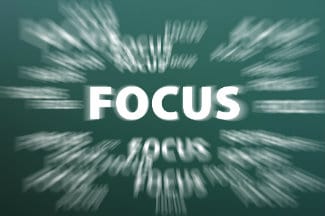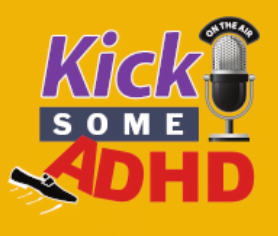 Misunderstanding ADHD makes life’s challenges even harder. You think you’re doing something that makes ADHD easier to live with.
Misunderstanding ADHD makes life’s challenges even harder. You think you’re doing something that makes ADHD easier to live with.
The reality? You’re actually dropping a boulder on your foot. Often what seems logical and helpful is the wrong approach.
This happens when you think quiet equals focus.
Misunderstanding ADHD – Quiet = Focus
Let’s look at a couple of common examples.
- Your daughter needs to do her homework. She has Inattentive ADHD and every little thing distracts her. Of course you make her turn off her music and study in a tomb quiet bedroom. It’s logical, right?
- Or, you’re desperate to finish a work project. You can’t focus in your noisy office. So you hide yourself away in a quiet conference room. No distractions. No interruptions. That quiet will be the magic key that will help you focus.
Aren’t those logical approaches? Erase the distractions to get someone with ADHD focused and finishing stuff.
Except ADHD doesn’t work that way. A too quiet bedroom or conference room is the last place to put a person with attention deficit. At least if you want them to accomplish anything.
Misunderstand ADHD and You Risk Making Things Worse
You see, ADHD is actually an issue of brain stimulation.
Without enough stimulation the ADHD brain goes dim. You can’t focus. You can’t start. Nothing gets done. For most people with ADHD a totally quiet room doesn’t provide enough brain stimulation.
This stimulation connection is why you’re a vision of productivity when you have a screaming deadline.
I hate to tell you, but the risk of misunderstanding ADHD get’s more complicated.
The amount of stimulation you’ll need will change from day to day. You might be able to focus in that quiet conference room sometimes. That music that helped you focus one day can totally distract you the next.
Understanding ADHD means realizing you’ll frequently need to adjust your environment so you can focus.
Your perfect balance of stimulation is built on shifting sands. Too much stimulation and you get scattered and overwhelmed. Too little your brain goes flat.
More Resources about Misunderstanding ADHD
This is the third article in a series about misunderstanding ADHD. You’ll find the others here:
Living with ADHD doesn’t have to be so hard! I encourage you to learn everything you can about ADHD and how it works. Misunderstanding ADHD leads to tactical errors which only make things worse.

 Tired of struggling with ADHD? You’re in the right place. ADHD Success is loaded with free, practical tips to help you get organized, manage your time, and live more easily with Adult ADHD. Like what you read? Sign up for the newsletter now! No Spam. I promise!
Tired of struggling with ADHD? You’re in the right place. ADHD Success is loaded with free, practical tips to help you get organized, manage your time, and live more easily with Adult ADHD. Like what you read? Sign up for the newsletter now! No Spam. I promise!
Can u post information on the link between ADD/ADHD and depression. The Mayo Clinic website says, “many adults with ADHD also have at least one other mental health condition, such as depression or anxiety.” But it doesn’t give any further information or insights. As one gets better at managing their ADD/ADHD does their depression/anxiety improve? or vice versa? which causes which (or is it a chicken and egg situation as to which came first). Do ADD/ADHD and depression/anxiety symptoms overlap? I think it’s a very interesting topic & Im having trouble finding information on it.
The link between ADD/ADHD and depression is important. Yes, I’ll write something up. Look for it in a few weeks.